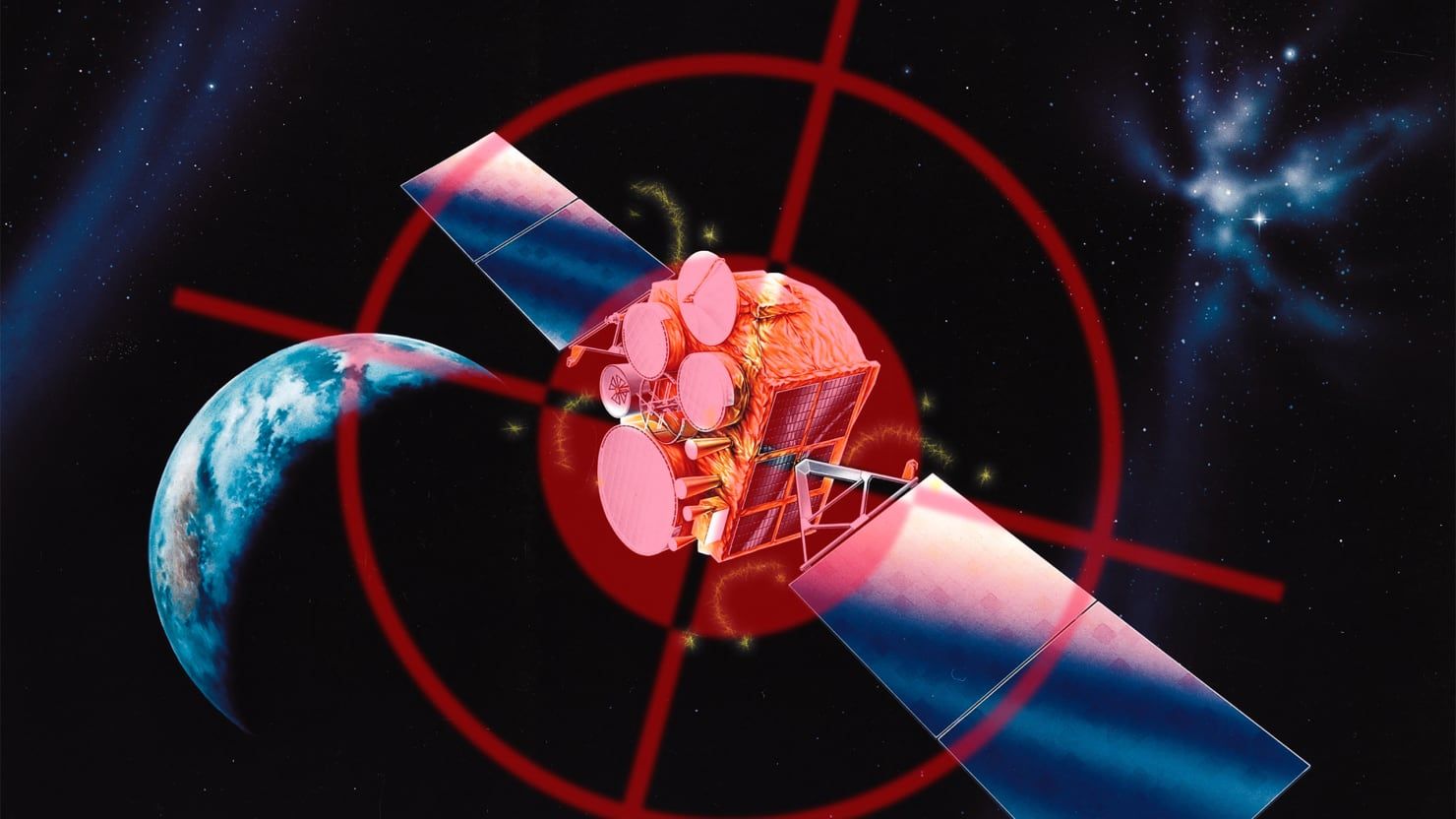Russia and China Trying to Tie America’s Hands in Space
Article by Bradley Bowman and Jared Thompson March 31, 2021 (foreignpolicy.com)
• China and Russia have sprinted to develop and deploy both ground-based and space-based weapons targeting satellites while simultaneously pushing the United States to sign a treaty banning such weapons. Washington should avoid being drawn into international treaties on space that China and Russia have no intention of honoring.
• The Treaty on the ‘Prevention of the Placement of Weapons in Outer Space and of the Threat or Use of Force Against Outer Space Objects’ (PPWT), which Beijing and Moscow have submitted at the United Nations, is a perfect example. PPWT signatories commit “not to place any weapons in outer space.” It also says parties to the treaty may not “resort to the threat or use of force against outer space objects” or engage in activities “inconsistent” with the purpose of the treaty.
• More than two years ago, the US Defense Intelligence Agency noted that both China and Russia were already developing space capabilities that could be used as weapons. The reality is that China and Russia are already racing to field anti-satellite weapons. “The space domain is competitive, congested, and contested,” said the head of US Space Command General James Dickinson. “Our competitors, most notably China and Russia, have militarized this domain.” The PPWT treaty would thus protect their weapons while tying Washington’s hands.
• China’s People’s Liberation Army units are already training with ground-based anti-satellite missiles capable of destroying satellites in geosynchronous Earth orbit, where America’s most sensitive nuclear communication and missile defense satellites orbit. China has also tested several ‘scavenger satellites’ which can sidle up to other satellites and use grappling arms to capture the other satellite.
• In 2018, Russian President Vladimir Putin heralded a ground-based laser weapon designed to attack satellites. Last December, Moscow tested a ground-based anti-satellite weapon that could destroy satellites in orbit. Russia recently deployed a pair of “nesting doll” satellites where one Russian satellite actually ‘births’ another. The second satellite has the capability to fire what appears to be a space torpedo.
• Meanwhile, China and Russia are pushing the United Nations for a “no first placement” resolution in which no government should be the first to put weapons in space. In a thinly veiled attempt to mask their intentions, China and Russia claim that their on-orbit capabilities are simply for peaceful purposes — for assessing the condition of broken satellites and conducting repairs as needed. This “dual-use” disguise permits Beijing and Moscow to put into orbit ostensibly peaceful or commercial capabilities that can also be used to disable or destroy U.S. military and intelligence satellites.
• A typical space treaty clearly defines acceptable and unacceptable actions in space and includes inspection and verification mechanisms. But the PPWT treaty does not explicitly prohibit the ground-based anti-satellite weapons that China and Russia have already fielded. Nor does the proposed treaty prevent the deployment of space-based weapons under the cloak of civilian or commercial capabilities. The PPWT does not even prohibit the development, testing, or stockpiling of weapons on Earth that could be quickly put into orbit. Instead, the treaty calls for “transparency and confidence-building measures” implemented on a “voluntary basis.” In other words, Beijing and Moscow want the United States to trust but never verify.
• Moscow habitually seeks to use international arms control treaties to constrain the United States, while viewing treaty strictures as optional when they become inconvenient or when the Kremlin sees an opportunity to seize a military advantage. For more than a decade, Moscow used the ‘Intermediate-Range Nuclear Forces Treaty’ to constrain the United States while the Kremlin produced, flight-tested, and fielded a ground-launched intermediate-range cruise missile in direct contravention of the treaty.
• Beijing usually avoids any type of international arms control treaties. The willingness of the Chinese Communist Party to support the PPWT is, therefore, cause for some additional reflection.
• Instead of falling prey to China and Russia’s PPWT trap, the United States must work with allies to improve the resilience and redundancy of spaced-based military and intelligence capabilities. “There are really no norms of behavior in space,” said General John Raymond, chief of space operations at US Space Force. “It’s the wild, wild West.”
• In December, the U.N. General Assembly passed a British-introduced resolution that seeks to establish “norms, rules and principles of responsible behaviors” in space, which could reduce the chances for dangerous miscalculation. The vote was 164 in favor, 12 opposed. Those opposing this resolution included China, Russia, Iran, North Korea, Syria, Venezuela, and Cuba.

Saying one thing and doing the opposite is, unfortunately, common in international

diplomacy. Beijing and Moscow, however, seem to have a unique proclivity for the practice.
Consider the actions of the United States’ two great-power adversaries when it comes to anti-satellite weapons. China and Russia have sprinted to develop and deploy both ground-based and space-based weapons targeting satellites while simultaneously pushing the United States to sign a treaty banning such weapons.
 To protect its vital space-based military capabilities—including communications,
To protect its vital space-based military capabilities—including communications, intelligence, and missile defense satellites—and effectively deter authoritarian aggression, Washington should avoid being drawn into suspect international treaties on space that China and Russia have no intention of honoring.
intelligence, and missile defense satellites—and effectively deter authoritarian aggression, Washington should avoid being drawn into suspect international treaties on space that China and Russia have no intention of honoring.
The Treaty on the Prevention of the Placement of Weapons in Outer Space and of the Threat or Use of Force Against Outer Space Objects (PPWT), which Beijing and Moscow have submitted at the United Nations, is a perfect example. PPWT  signatories commit “not to place any weapons in outer space.” It also says parties to the treaty may not “resort to the threat or use of force against outer space objects” or engage in activities “inconsistent” with the purpose of the treaty.
signatories commit “not to place any weapons in outer space.” It also says parties to the treaty may not “resort to the threat or use of force against outer space objects” or engage in activities “inconsistent” with the purpose of the treaty.

On the surface, that sounds innocuous. Who, after all, wants an arms race in space?
The reality, however, is that China and Russia are already racing to field anti-satellite weapons and have been for quite some time. “The space domain is competitive, congested, and contested,” Gen. James Dickinson, the head of U.S. Space Command, said in January. “Our competitors, most notably China and Russia, have militarized this domain.”
Beijing already has an operational ground-based anti-satellite missile capability. People’s Liberation Army units are training with the missiles, and the U.S. Defense Department believes Beijing “probably intends to pursue additional [anti-satellite] weapons capable of destroying satellites up to geosynchronous Earth orbit.” That is where America’s most sensitive nuclear communication and missile defense satellites orbit and keep watch.
FAIR USE NOTICE: This page contains copyrighted material the use of which has not been specifically authorized by the copyright owner. ExoNews.org distributes this material for the purpose of news reporting, educational research, comment and criticism, constituting Fair Use under 17 U.S.C § 107. Please contact the Editor at ExoNews with any copyright issue.


 Is there credible evidence to support the existence of an afterlife? A Las Vegas businessman says he will spend $1 million to find out.
Is there credible evidence to support the existence of an afterlife? A Las Vegas businessman says he will spend $1 million to find out.
 Bigelow, the founder and owner of Bigelow Aerospace as well as the hotel chain Budget Suites of America, has spent millions of dollars to pursue two enduring mysteries — whether there is other intelligent life in the universe and whether human consciousness continues after physical death.
Bigelow, the founder and owner of Bigelow Aerospace as well as the hotel chain Budget Suites of America, has spent millions of dollars to pursue two enduring mysteries — whether there is other intelligent life in the universe and whether human consciousness continues after physical death.